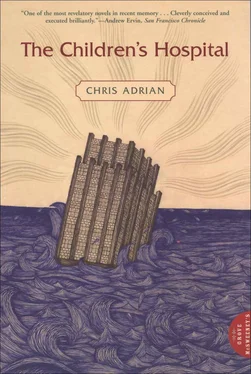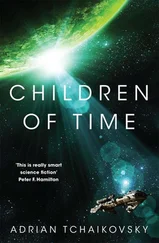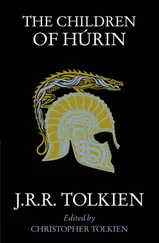“Would you like something else?” she asked him. “It would be easy to make.”
“I could eat it,” he said, “but it wouldn’t make any difference. You won’t be hungry anymore. You will forget your brother. Better to say the moon will become an eye, or the sun will burn blue. Nasty, stupid fucking angel!”
“Pickie! Apologize right now,” she said, though she hated her too, in her way, and she hardly wanted to be a corrector or a disciplinarian.
“I’m sorry,” he said. “I am so sorry, for so many things. I will not say sorry to an angel, though.” He got out of his chair and ran over to her, skibbling like an ordinary six-year-old. “Oh Mama,” he said. “I am too sorry. I know you are not that sort of whore, not one to ever forget your brother. It is the worst sin, just the sort to be encouraged in by an angel. Wasn’t it the reason for the drowning, because too many of them had forgotten their dead brothers, because they all went on like such lives and deaths did not matter? Shame and water upon them.” He sighed, and sobbed, and Jemma was so tempted to stab into his sick little brain with green fire and burn it clean of all the wacky shit infesting it, but she could tell without trying that she would be as harshly rebuked as ever. She petted his warm bald head and murmured, “It’s okay.” This made him laugh. He lifted his head to smile at her, then put his face in her lap again and sang. It took her a little while to make out what he was saying. “Baby, baby, baby,” he sang, over and over, his little hand resting one her belly, Jemma protecting herself with layer after layer of imaginary insanity repellant. “Baby, baby, baby,” and finally, after a hundred or more baby’s, “Baby brother.”

It was Kidney who noticed the boat. A week after the Match, on their one-hundred-and-seventy-third day at sea she pointed it out during Jemma’s class. They were playing multi-vector scrabble, a game designed by Josh Swift, who was insufficiently challenged by the regular game, and so went to the angel for help making a board that let you spell words up in every direction into the air, and down below the board, which floated four feet above the ground. They were playing in two teams of four and one of five — Jemma and Pickie and the three youngest children. Jemma’s team had just taken the lead when Pickie built pantarch up from cupola. Kidney’s observation interrupted an argument between Pickie and Josh, who would not believe that there was any such word as pantarch, pantarchy, or pantarchian.
“It’s just another iceberg,” said Cindy Flemm, squinting after Kidney’s pointing finger. Four days before they’d seen the first one, a mountain of green ice that passed over the horizon in the early-morning darkness, raising false hopes of an island, and then false alarms of a collision as it drifted steadily toward them, getting huger and huger in the hours after dawn. Just at noon, they passed within five hundred yards of it, and people crowded the roof and the windows to stare up, hoping to see a bear or a penguin. One after another the icebergs came sliding over the horizon in every shape and every size, the smallest not much bigger than a car and the biggest dwarfing the hospital. Within a day they had become a common sight, but they never lost their novelty. Jemma found she could stare at them for hours. Even just one penguin would have been heartening, but she daydreamed of swarms of them pouring over the ice on their bellies, sliding in spirals down to the sea, now green and clear — it was water that cried out for penguins to frolic in it. The incredible abundance of fish should have been enough, she knew, but already people were turning away from the windows and the water and looking to the sky. “I just want a bird, just one,” said Helena Dufresene, one morning on the roof. “It would be such a gift,” she added, and Jemma found herself agreeing, and consoling herself with a fantasy of hidden penguins, secreting themselves on the back side of every iceberg, holding flippers to beaks as they passed the hospital.
“Nuh uh,” said Kidney. “It’s a big boat. I can see the smokestack.”
“Iceberg,” said Jarvis.
“It’s not moving the same,” said Josh.
Jemma squinted, too. She could see the boat-shape moving among a herd of hill-sized icebergs, but she wasn’t convinced. “Let’s get back to the game,” she said, but they all ignored her. Josh went to a replicator and politely asked the angel for a pair of binoculars. She gave him an old-fashioned spyglass of polished brass. He raised it to his eye and said, “Hot damn.”
“Wait a minute,” Jemma said. “We should make sure before you all go running off and…” But they were already all running off to shout “A boat! A boat!” throughout the hospital. Soon it was just she and Pickie there.
He looked through the little telescope and said, “Another angel, Mama. As if we didn’t have enough already.” She asked what he meant, but he sat down to consider the Scrabble board again and handed the glass to Jemma. She looked through it and saw what the children had seen: a big boat, a cruise liner, floating backward between two icebergs, as if they were escorting it someplace.
There was another swarming to the roof, and people called out “Hello!” as the boat drifted nearer, even though it was still over a mile away, and the huge crowd grew entirely silent while they waited for a reply. Jemma went right to the Council chamber, swimming against the current on the ramp. Dr. Tiller was already there, sitting on a table and tapping one booted foot on a chair as she watched the boat getting bigger and bigger outside the window.
“What do you think, Dr. Claflin?” she asked. Jemma shrugged and sat down. When the other Friends and the rest of the Council had arrived they declared an emergency session and began to babble furiously, asking and answering questions like What does it mean, and What do you think, and What should we do, and Does anyone else think it looks like the Queen Elizabeth Two? The boat loomed behind them as they had their wild, excited discussions; Jemma turned to look over her shoulder every ten minutes and found it had gotten a little bigger. She called for order but no one could hear her, and she would not use the gavel. When she turned to Vivian she could hardly make herself heard until the four of them pushed their chairs together and huddled their heads.
“How will we get over to the boat?” asked Ishmael.
“What precautions should we take?” asked Vivian.
“How soon can we go?” asked Jemma.
“It is no place for you,” said Monserrat. “What if there are cannibals?”
“Why would there be cannibals?”
“Because,” Monserrat said. “There is always something bad on boats like that.”
“If I say I go, I go. Who’s in charge here?”
“We are,” said Ishmael.
“You are,” said Vivian, “but with qualifications.”
“Can anyone stop me from going over there?”
“Probably not,” said Ishmael. “But wouldn’t it be a better idea—”
“No,” Jemma said.
“Very well,” said Monserrat. “The four of us will go, though I saw the movie, Cannibal Cruise, and it was a boat just like that one which came drifting out of the mist to lure and destroy the curious.”
“The question remains,” said Ishmael. “How to travel?”
Vivian drew a picture of a boat on Jemma’s big yellow pad, and Ishmael, carefully taking the pen from her, broke it down into sections small enough to come out of a replicator. They traded the pen back and forth, clarifying and embellishing the sketch — sails, solar-powered propeller, hydrofoil, boarding crane — while the Council chamber continued in bedlam. Dr. Snood took off his shoe, finally, and pounded it on the table. “Order!” he shouted. “Order! Madame Friend, will you bring us to order?”
Читать дальше













